Life in the Regions: Bakhtiyar Abdykulov from Panfilovsky District Strives to Contribute to the Preservation of the Purebred Kyrgyz Taigans
31-year-old Bakhtiyar Abdykulov, residing in the village of Orto-Aryk in the Panfilov District, has been breeding Kyrgyz Taigans for over five years.
Since early childhood, living in the village, he showed an interest in horses and dogs.
“After finishing school, I moved to the city for studies and work. Upon returning to my native village, I got a Laika and a Drathaar. One day, a neighbor suggested I get a Taigan. At first, I refused, but then I thought: why breed foreign breeds when I can work with our own, Kyrgyz breed? That's how my passion began,” Bakhtiyar shares.
According to his observations, many of his peers show no interest in this topic. Realizing that Taigans are becoming rare, he decided to contribute to the preservation of this breed, as the ancestors of the Kyrgyz have kept these dogs for centuries.
Currently, Bakhtiyar has three Taigans and one Laika: one female and two males. He acquired the youngest Taigan when it was just over four months old, while the other two are already adults — they are 3 and 4 years old, respectively.
“I have been breeding Taigans for about 5-6 years. Hunting with them brings immense pleasure — watching them race after the prey is indescribable,” he shares.
Taigans, unlike other breeds, are distinguished by their high speed, keen eyesight, and persistence — they do not let go of the prey once they catch it.
Taigans have sharp vision, especially those with reddish eyes, which are said to see better. They can spot a jackal or a fox from a considerable distance. Sometimes, it is his Taigans that first detect a jackal and chase after it.
Bakhtiyar tries to take care of his pets. In summer, he buys meat when livestock is slaughtered somewhere. In winter, he limits the amount of meat, as overfed Taigans can gain weight and lose speed. During this period, he feeds them barley porridge without salt, which is harmful to them. After hunting, he ties up the dogs, and after a couple of days, he lets them out for a walk again, as they cannot be kept on a chain for too long.
In winter, Bakhtiyar trains the Taigans like horse riders — preparing them for running. He believes it is important not to punish or shout at the dogs, as Taigans are very sensitive: if frightened, they can become disoriented during a hunt and even fear a loud voice,” he adds.
Bakhtiyar also shared several interesting stories about his Taigans:
“Last year, my friend asked for one Taigan, as there were many jackals. I agreed, but a few days later he called and said the dog had run away. I was very worried, but by evening, when I returned from work, I found that the Taigan had come back home. I checked the map and found out that he had found his way home from about 30 kilometers away. It was amazing!”
The Taigan is a hunting dog, and Bakhtiyar mainly keeps them for hunting. Sometimes he takes them with him when he herds livestock, as they protect him from predators. In recent years, there have been many jackals in his area.
These animals pose a danger: they raid nests and eat the eggs and chicks of wild birds. Taigans help protect nature and livestock. The main difference between the Kyrgyz Taigan and foreign breeds is that while other dogs lose sight of their prey, they stop.
The Kyrgyz Taigan continues to chase the game, sensing its smell and track. It runs equally well in both mountains and plains, making it ideal for local conditions. In terms of endurance and character, it is also unique — it can adapt to both cold and heat.
Bakhtiyar emphasizes that their goal is to preserve purebred Kyrgyz Taigans and pass them on to future generations. Despite the influx of many foreign breeds, he and his like-minded individuals strive not to crossbreed them with local ones to maintain the purity of the Kyrgyz Taigan's blood,” he concluded.
Read also:
Life in the Regions: An Accountant from the Aitmatov District Breeds Animals That Produce Up to 8 kg of Wool
58-year-old Aibek Amanbaev, residing in the village of Suulu-Maimak in the Aitmatov district of the...
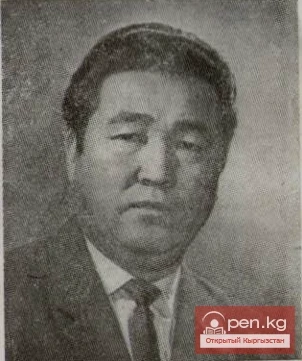
Abdykulov Imankul Abdykulovich
Abdykulov Imankul Abdykulovich Organizer of film production. Member of the Communist Party of the...
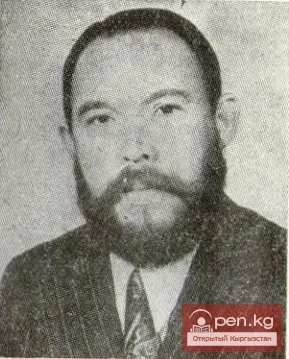
Abdykulov Karel Aydarbekovich
Abdykulov Karel Aydarbekovich Cinematographer. Born on May 31, 1940, in the collective farm...
Took a Risk to Detain a Murder Suspect — A Case from the Practice of Major Bakhtiyar Bokushyev
On November 1, the Kyrgyz police will celebrate its 101st birthday. In connection with this date,...
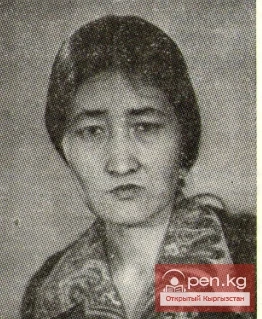
Sharshenova Rakiya
Sharshenova Rakiya Editor. Born on May 15, 1941, in the village of Orto-Aryk, Panfilov District,...
District No. 17. Names of 7 Registered Candidates for the Jogorku Kenesh Deputies
The Central Commission for Elections and Referendums has begun the process of registering citizens...
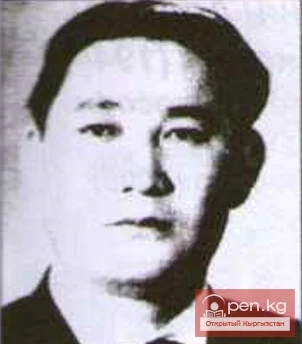
Asan Tilekeevich Tilekeev
Tilekeev Asan Tilekeevich (1930-1991), Doctor of Historical Sciences (1986), Professor (1988)...
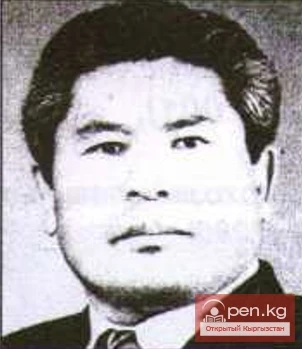
Sartbaev Karatay
Sartbaev Karatai (1930), Candidate of Pedagogical Sciences (1965), Professor (1992) Kyrgyz. Born...
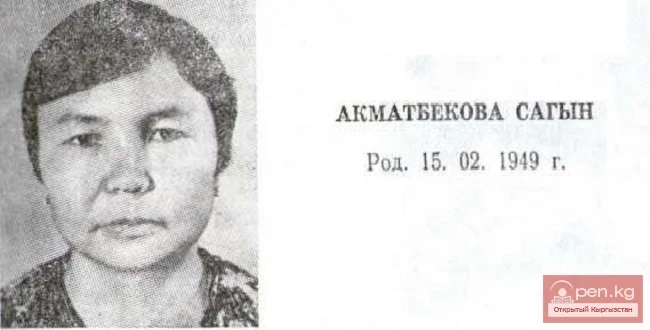
The Poet Sagyn Akmatbekova
Poet S. Akmatbekova was born in the village of Orto-Aryk in the Panfilov district of the Kyrgyz...
Life in the Regions: Dastan Kamilov Gives New Life to Stones by Creating Modern Objects from Them
Dastan Kamilov, residing in the village of Maman in the Ak-Suu district, is engaged in creating...

Osmonkul Aliev - Editor-in-Chief of the First Kyrgyz Printed Publications
Osmonkul Aliyev (1903-1938) was born in the village of Choloq-Aryk in what is now the Panfilov...
Not by Duty, but by the Call of the Heart: How Policeman Ermart Sasykov Prevented a Tragedy and Saved Two Lives
Ermart Sasikov, a police major and senior district inspector of the territorial police department...
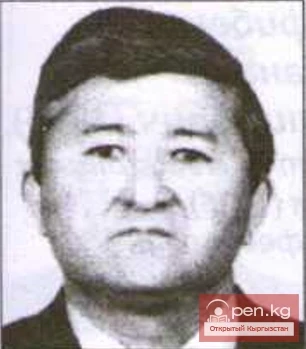
Raimbekov Dokturbek
Raimbekov Dokturbek (1948), Doctor of Veterinary Sciences (1995), Professor (1996) Kyrgyz. Born in...
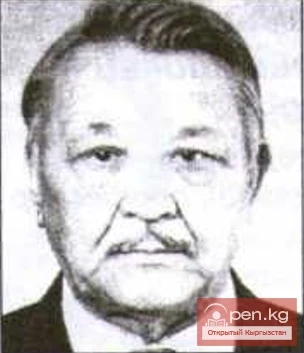
Turgunbekov Rafik
Turgunbekov Rafik (1928-1999), Doctor of Law (1976), Professor (1995), Corresponding Member of the...
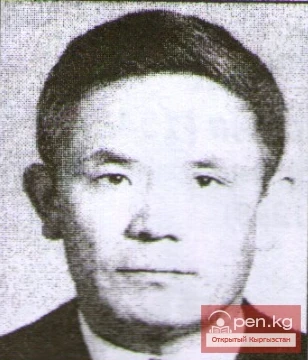
Mursaliev Asyrkul Mursalievich
Mursaliev Asyrkul Mursalievich (1934), Doctor of Biological Sciences (1990) Kyrgyz. Born in the...
The State National Security Committee returned a kindergarten and a House of Culture in Kainy, illegally privatized in 1999, to the state.
The State Committee for National Security (SCNS) reported on October 20 about the return of a...
In the Zharily-Kayindy Gorge, 3 men with weapons and roe deer meat were detained, - Ministry of Natural Resources
On October 24, a raid organized by the Chui Regional Department of the Ministry of Natural...
District No. 17. Names of 17 candidates who notified the Central Election Commission of their participation in the parliamentary elections
The Central Commission for Elections and Referendums has opened the acceptance of applications from...
A Center for Applied AI and Cybersecurity Research and Innovation will be established in the Kyrgyz Republic
The Minister of Science, Higher Education and Innovation Bakhtiyar Orozov announced plans to...
Drunken daughter-in-law fought with her mother-in-law, while a boy ran away from home and pushed carts at the Osh market — stories of police captain Azat Toikulov
On November 1, the Kyrgyz police will celebrate its 101st anniversary. In this regard, Turmush...
Life in the Regions: Arab Partners Gave a Kyrgyzstani a Black Falcon Named Habibi
Kurvantai Bilaldinov from the village of Novopokrovka in the Issyk-Ata district is engaged in the...
Young Talents: A Student from Tyup R. Perizhiga is Fluent in Kyrgyz and Conquering Equestrian Sports in Kyrgyzstan
Ruslan Perezhiga, who lives in the village of Tyup in the Issyk-Kul region, speaks Kyrgyz fluently...
Life in the Regions: Rakhатbek Nurdinov Purchased Three-Month-Old Lambs for 900,000 Som
Rakhatebek Nurdinov, a farmer from the Suusamyr Valley, has chosen to breed Areshan sheep. Three...
Life in the Regions: The Journey of Egemberdi Batyrbekov from Talas to His Form Began with His Father's Cap
Egemberdi Batyrbekov, a 42-year-old police officer from Talas, is following in the footsteps of his...
Life in the Regions: Hunter M. Beishekeyev Explained Why They First Try to Shoot the Wolf and Only Then the She-Wolf
Murad Beishekeev, a 49-year-old resident of Talas, has been practicing wolf hunting for many years....
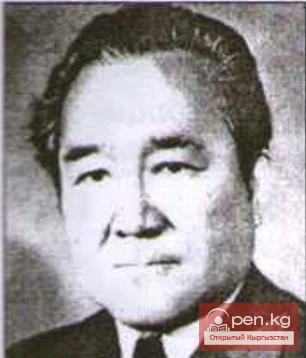
Toktogonov Sultan Amankulovich
Toktogonov Sultan Amankulovich (1913), Doctor of Historical Sciences (1968), Professor (1970)...
Life in the Regions: Gardener Abduvaitjan Khankeldiev Grows Large Pomegranates Weighing Up to 1.5 kg
Abduvaitjan Khankeldiev, residing in the village of Kümüş-Aziz, located in the Barpy district of...
Life in the Regions: The Story of Munara Mustapaeva — a Young Equestrian for Whom Horses Became Her Destiny
The rider from the village of Baizak in the Tyup district of the Issyk-Kul region, Munara...
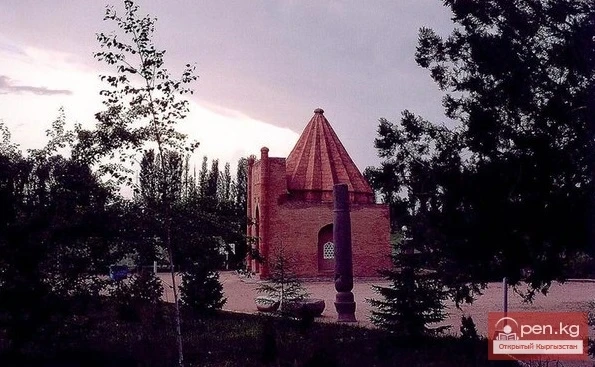
Mamatbek Sydykov
Sydykov Mamatbek...

Alexander Petrovich Zhemchugov
Zhemchugov Alexander Petrovich Jewelry artist. Born on August 28, 1951, in the village of...
A Kyrgyz Fisherman Went to the Indian Ocean to Catch a Shark: His Story
Arthur Sedov, a 28-year-old resident of Bishkek and organizer of fishing competitions for children...
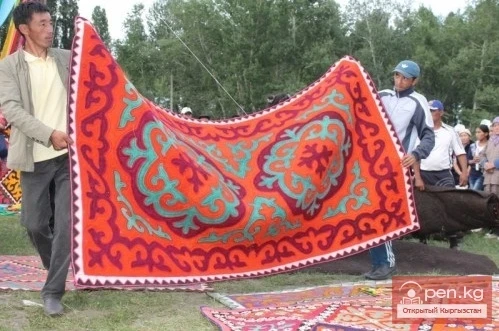
In the At-Bashinsky District, the results of the best Kyrgyz carpets competition were summarized.
The results of the competition for the best Kyrgyz carpet, held at the IV International Festival...
Life in the Regions: A Group of Foreigners Bought Felt Beads from Kerimzhan Kadyrkulova
58-year-old Kerimzhan Kadyrkulova, living in the village of Min-Bulak, is engaged in the production...
Life in the Regions: A Resident of the Tyup District, Venera Saadanbekova, Creates Paintings Worth Up to 50,000 Som
Creative Inspiration: Venera Saadanbekova from the Tyup District Creates Unique Paintings. Venera...
Life in the Regions: Residents of the village of Bakyian in the Talas Region unite to revive traditional crafts
In the Talas region, in the village of Bakyyan, women artisans have united to create unique...
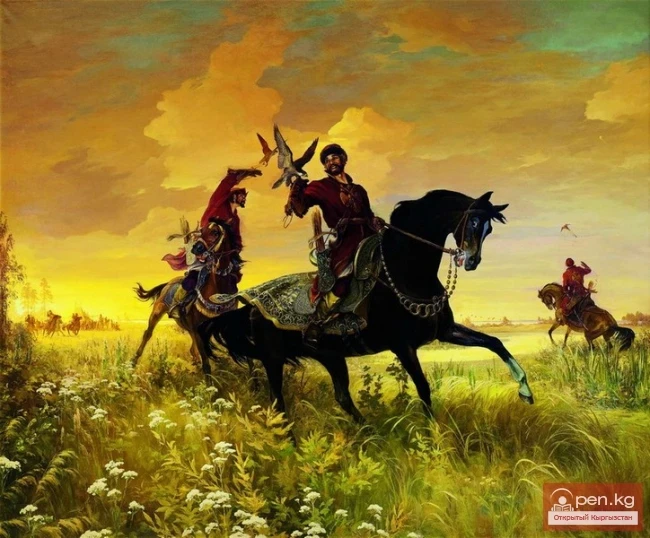
About the Golden Eagle and the Daughter of the Mongoose Hunter
The daughter of the famous munushker married a simple, yet well-off man, who was neither a hunter...
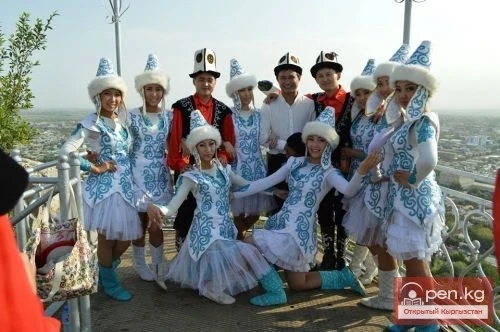
Best Cultural Project of 2014 – "Kyrgyz Biy"
The Chubak Sataev Public Foundation and the Sanat.KG magazine held a ceremonial evening on...

Alymov Bek (1932-1998) — Doctor of Pedagogical Sciences (1995)
Alymov Bek (1932-1998), Doctor of Pedagogical Sciences (1995), Professor (1986)...
In Jumgal, more than 100 exhibits from the 19th–20th centuries have been transferred to the district historical and ethnographic museum.
In the historical and ethnographic museum of the Jumgal district, there are now more than 100...
A new school is being built in the village of Jangy-Jer in the Batken district.
In the village of Jany-Jer in the Batken region, the construction of a new educational institution...

BAIGHOZHOEV Orozbek Chookoevich
BAIGUZHOEV Orozbek Chookoevich...
In At-Bashy, the 100th anniversary of two people's artists was celebrated
In At-Bashy, a solemn event was held to commemorate the centenary of the People's Artists of...
In the village of Syrt in the Aravan district, the construction of a new school has begun
In the village of Syrt, located in the Aravan district of the Osh region, the construction of a new...
Life in the Regions: In Sokuluk, 15-year-old ulakchy Kenenbaeva was entrusted with a horse worth 10 thousand dollars
Shoola Kenenbaeva, 15 years old, lives in the village of Tosh-Bulak (Төш-Булак), located in the...

Population of Kyrgyzstan as of January 1, 2013
Population of Kyrgyzstan Thanks to the fundamental changes that occurred in Kyrgyzstan after the...